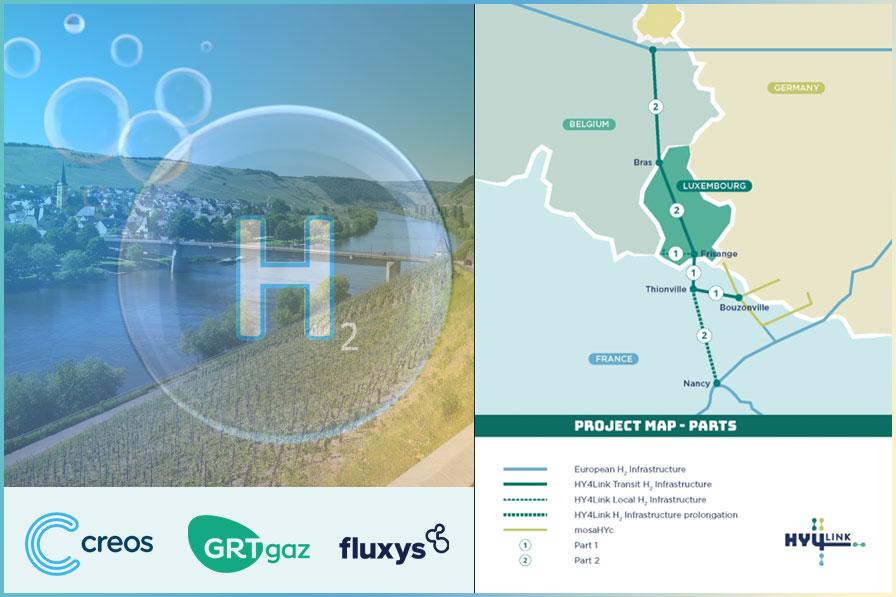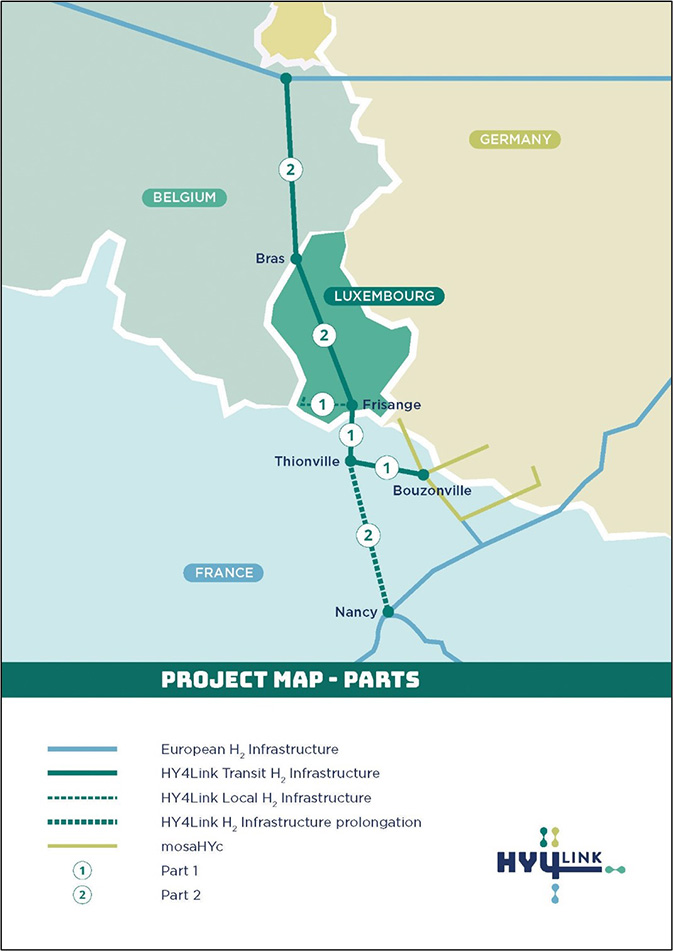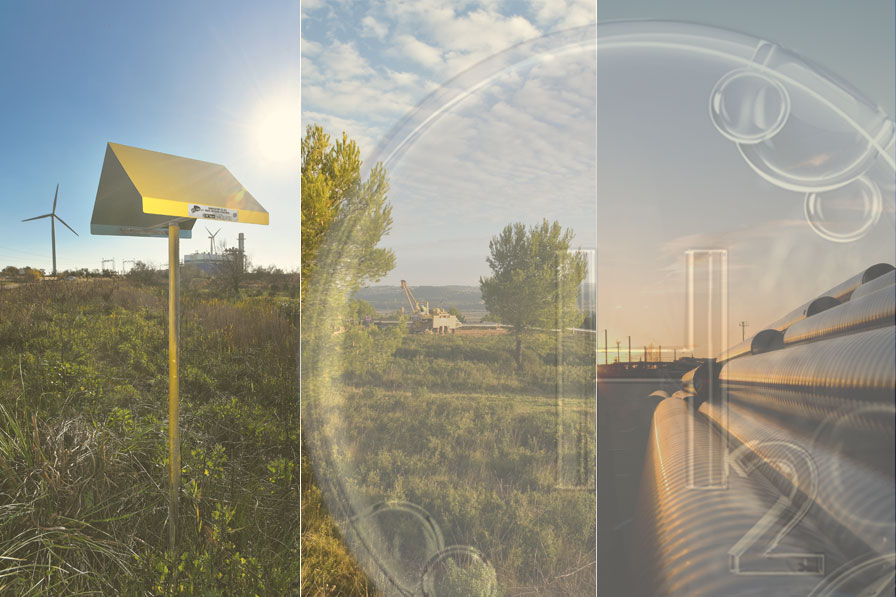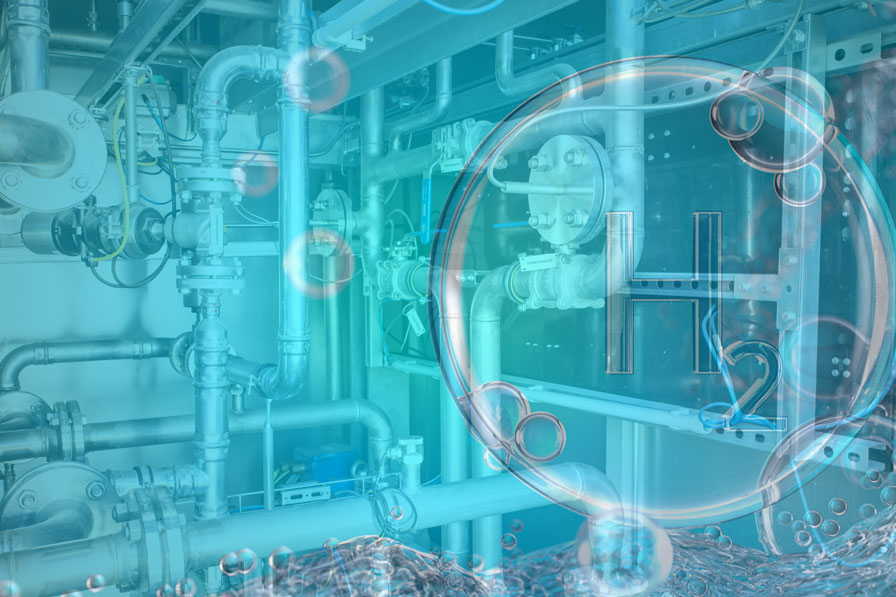HY4Link

Creos Luxembourg, Fluxys hydrogen in Belgium, and GRTgaz in France announce the inclusion of the cross-border hydrogen infrastructure project HY4Link in the European hydrogen network development plan, a first step to become Project of Common Interest. In the light of this announcement, the partners have signed a Memorandum of Understanding to intensify their cross-border hydrogen infrastructure cooperation.
With HY4Link, the project partners will conduct feasibility studies, after assessing consumption and transit needs, on an integrated cross-border hydrogen transport system in the Greater Region1. This visionary initiative proposes to link Belgium, Luxembourg, the Grand Est region in France, and the federal state of Saarland in Germany, forming a central part of the European hydrogen infrastructure2.
HY4Link is strategically designed to connect industrial hydrogen demand clusters in France, Germany, and Luxembourg with green hydrogen supply centres along the North Sea coast and import hubs in Antwerp, Zeebrugge, Rotterdam, and Dunkirk. The project aims to contribute significantly to the development of an efficient hydrogen infrastructure as key part of a decarbonised energy ecosystem. Moreover, the project will foster decentralized green hydrogen production across the Greater Region by providing the necessary hydrogen transport infrastructure.
For the France-Luxembourg part of HY4Link, Creos Luxembourg and GRTgaz will jointly investigate the possibility to develop an interconnected network running from Bouzonville (FR) to Frisange in the south of Luxembourg via Thionville, connecting to the mosaHYc project. The cross-border link between France and Luxembourg will be a starting point for establishing a hydrogen infrastructure in the south of Luxembourg.
For the Belgium-Luxembourg part of HY4Link, a potential pipeline connection will be considered in cooperation between Creos and Fluxys hydrogen to connect Luxembourg to the Belgium Hydrogen Backbone via the border crossing point Bras (BE).
This will be complemented by the construction of a hydrogen pipeline across Luxembourg to France and Germany, bolstered by GRTgaz' intention to build a new pipeline from Thionville to Cerville to connect to the H2Med corridor and a regional hydrogen storage project.
Pascal De Buck, Managing Director and CEO of Fluxys: “Creating cross-border interconnected networks is key to develop optimum diversity and security of hydrogen supply. The HY4Link project marks another step into making Belgium a hydrogen import and transit hub for Northwest-Europe.”
Sandrine Meunier, CEO of GRTgaz: “HY4Link will contribute to the development of a regional hydrogen economy and offer local industrial customers access to a competitive renewable hydrogen to accelerate their decarbonization.”
Laurence Zenner, CEO of Creos Luxembourg, emphasized the importance of HY4Link, stating, "By linking industrial demand clusters with green hydrogen producers along the North Sea coast, HY4Link will play a pivotal role for the decarbonization efforts in Luxembourg and the Greater Region”.
The project is in line with the partners’ vision of a decarbonised energy landscape and underscores their dedication to actively drive the transformation of the economy and society in the Greater Region. HY4Link will not only facilitate the reduction of carbon emissions across multiple sectors such as industry and transport, but also create sustainable job opportunities that contribute to the long-term prosperity of the region.

1 Greater Region is an area of cooperation bringing together partner territories such as Wallonie in Belgium, Luxembourg, Lorraine in France and Saarland in Germany.
2 The European Hydrogen Backbone (EHB) initiative | EHB European Hydrogen Backbone

